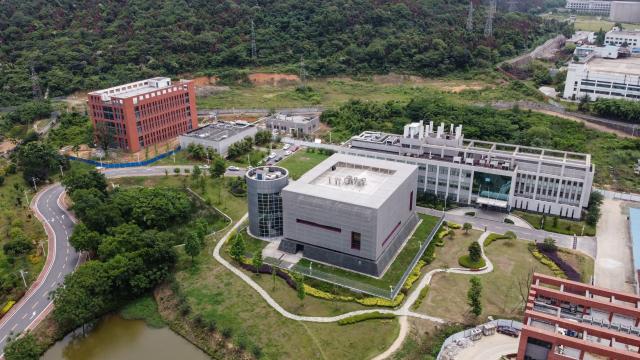Scientists assembled by the World Health Organisation to investigate the origins of the covid-19 pandemic have announced their early findings. They concluded that the first known cases traced to a seafood market in Wuhan, China in December 2019 likely don’t represent the original source of the outbreak. At the same time, they considered the possibility of a lab accident causing the pandemic “extremely unlikely,” and speculated that the virus wasn’t circulating locally in people for very long before the first cases were discovered.
The international team of scientists began their investigation in mid-January 2021, travelling to various areas of China, including the Huanan Seafood Market in Wuhan where the first cases of a then-mysterious pneumonia were reported in late December 2019. The investigation was a joint mission with local scientists from China, as part of an agreement made with the Chinese government in order to gain entry into the country. At a press conference held in Wuhan on Tuesday, the scientists laid out what they had found out so far.
[referenced id=”1519808″ url=”https://gizmodo.com.au/2020/10/no-the-world-health-organisation-did-not-backflip-on-lockdowns/” thumb=”https://gizmodo.com.au/wp-content/uploads/2020/10/15/niljeyxojdg7ggswkyev-300×168.jpg” title=”No, the World Health Organisation Did Not ‘Backflip’ on Lockdowns” excerpt=”This week, U.S. President Trump became the latest and loudest voice to advance a narrative that’s picked up steam among bad-faith contrarians eager to downplay the covid-19 pandemic. The (inaccurate) story is that the World Health Organisation has now suddenly changed its mind about lockdowns being useful. This is wrong…”]
The team’s conclusions are not final, and there will no doubt continue to be criticism of China’s handling of the pandemic, especially early on. Activists and local journalists have accused the Chinese government of silencing scientists and members of the public who tried to warn of the threat of covid-19 when it was first discovered. And it took close to a month before the country would acknowledge that the virus was indeed capable of spreading from person to person.
Even recently, the AP reported in December, China has tried to limit efforts by scientists to investigate the origins of the pandemic, while some officials have promoted unfounded theories about the virus having originated elsewhere in the world. That said, the AP has also reported that WHO scientists were granted as much access as they asked for during this investigation.
Among other things, the team said they found numerous bits of evidence suggesting that the Huanan cases weren’t the first cases of covid-19 in humans. One key finding, according to Liang Wannian — China’s lead scientist on the mission — was signs of diversity in samples of the coronavirus (formally called SARS-CoV-2) taken from these cases. That likely means the Huanan cluster wasn’t the original transmission event.
The team also looked at hospital surveillance data from Wuhan and the surrounding province of Hubei and determined that there weren’t unusual spikes in flu-like illness earlier than December 2019. This suggests, Wannian said, that “there was no substantial unrecognised circulation of SARS-CoV-2 in Wuhan during the latter part of 2019.” It’s worth noting that this finding is at odds with other evidence in China and in other countries suggesting that the virus may have been making people sick in November 2019 or earlier.
Another part of the investigation involved visiting the Wuhan Institute of Virology, which has been singled out by some as the possible source of a lab accident that somehow released the coronavirus into the community (some have even argued that the virus was deliberately created and dispersed). No definitive evidence for this theory has emerged to date, while other studies have found no indication that the coronavirus was artificially made in the lab. The WHO team concluded that the lab leak theory was improbable enough to effectively close the book on it.
“The findings suggest that the laboratory incident hypothesis is extremely unlikely to explain the introduction of the virus to the human population,” said Peter Ben Embarek, the leader of the WHO mission as well as an infectious disease and food safety expert, at the press conference.
The most likely possibility for the pandemic’s origin, Embarek said, is that the coronavirus leaped from bats to an intermediate host (possibly pangolins) and then to humans. Yet another possibility still being explored is that the virus could have been introduced to people through via frozen food products, since other evidence has suggested that it can survive in these conditions for a short time. However, the researchers did not go into detail as to how that pathway may have played out. And the WHO scientists still aren’t ruling out the possibility that bats alone transmitted the virus to humans.
